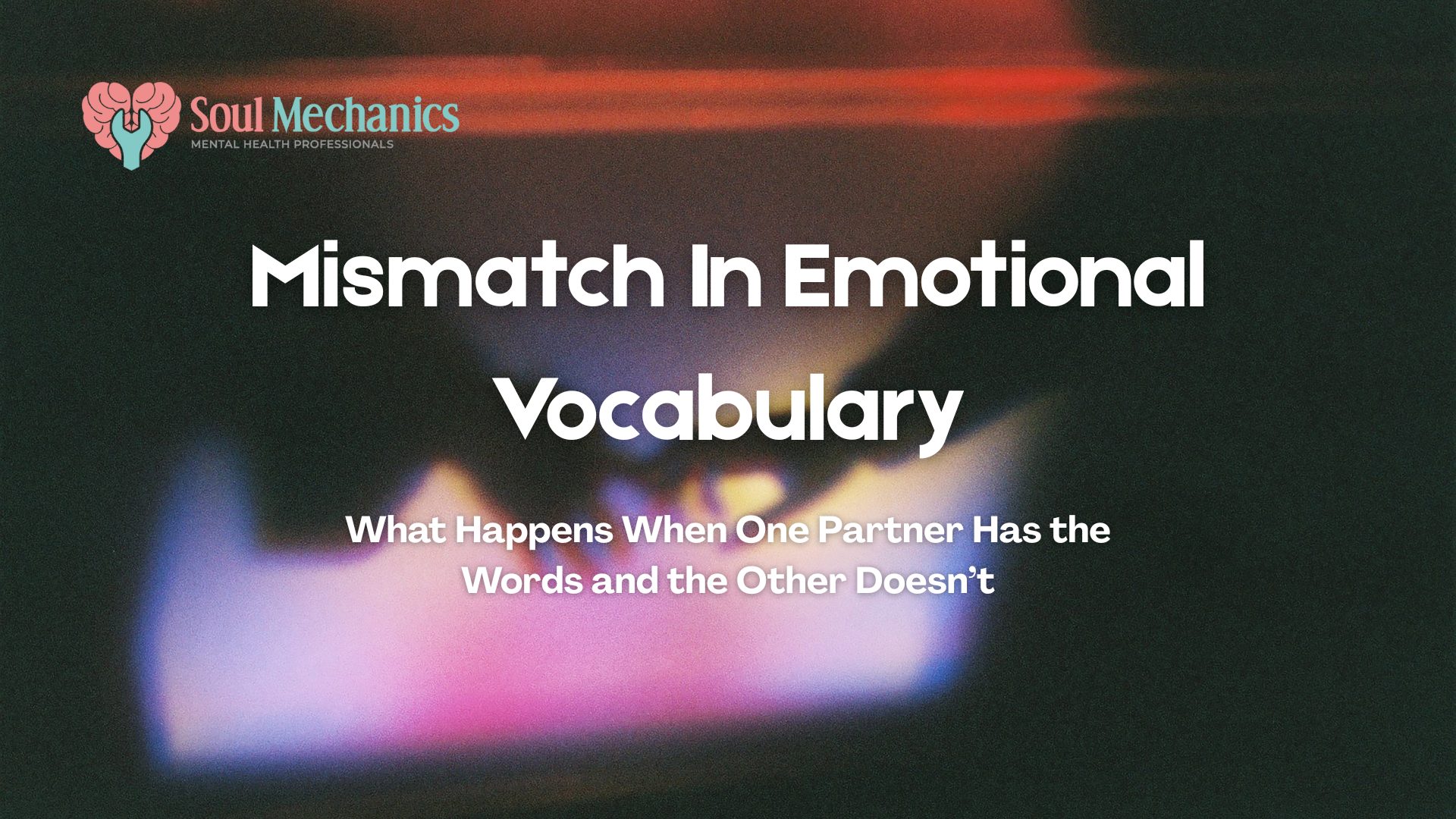Emotional Mismatch: “Why Don’t You Just Say How You Feel?”
Emotional Mismatch: “Why Don’t You Just Say How You Feel?”
Written by: Jenefa Anthony, Licensed Counsellor (KB 11780)
Let’s say you’re upset. Not just a little annoyed but really off. Your chest is tight, your mind’s racing, and you just want to talk about it. You try to explain what’s going on inside you to your partner, hoping for support or comfort. But what happens next is a classic emotional mismatch where your partner listens… and then say something like: “That’s rough. You’ll be alright though.”
And that’s it.
Now you’re even more upset. Not just because of what’s bothering you but because you feel totally misunderstood. You were hoping for connection. Instead, you feel like you just hit a wall.
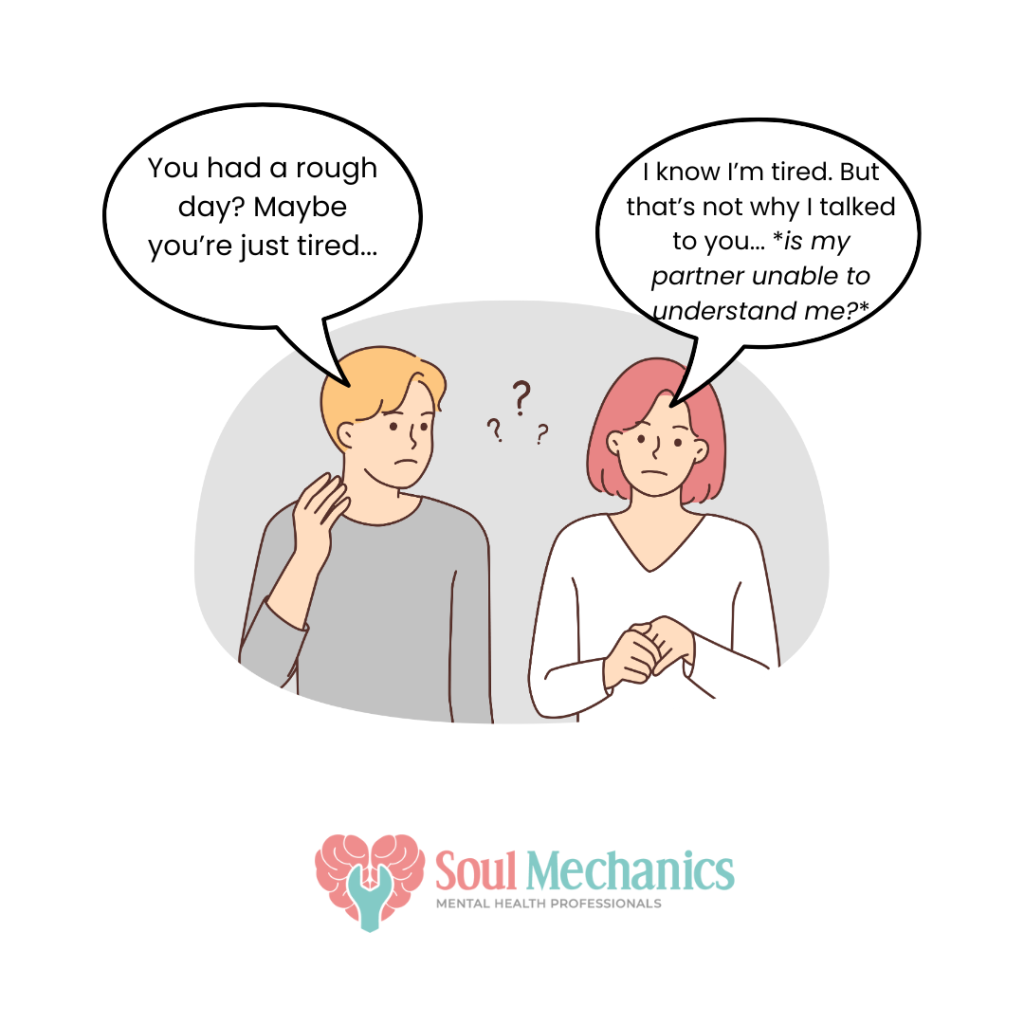
If this sounds familiar, you’re not alone. A lot of couples run into something like this. It’s called a mismatch in emotional vocabulary. Let’s talk about what that means and why it can make things so frustrating between two people who love each other.
What is “Emotional Vocabulary,” anyway?
Basically, it’s the words we use to talk about how we feel. Some people are great at this. They can say things like, “I’m feeling anxious because I don’t feel in control,” or “I’m not mad, I’m just feeling really disappointed.”
They know what’s going on inside them and can explain it. That’s a solid emotional vocabulary.
Then there are others who don’t have those words. They might just say something like “I don’t know, I’m fine”, “I’m just tired” or even “Can we not talk about this right now?”. This occurs not because these people don’t care. But because they honestly don’t know how to put their feelings into words. Or maybe they weren’t raised in a home where talking about emotions was normal.
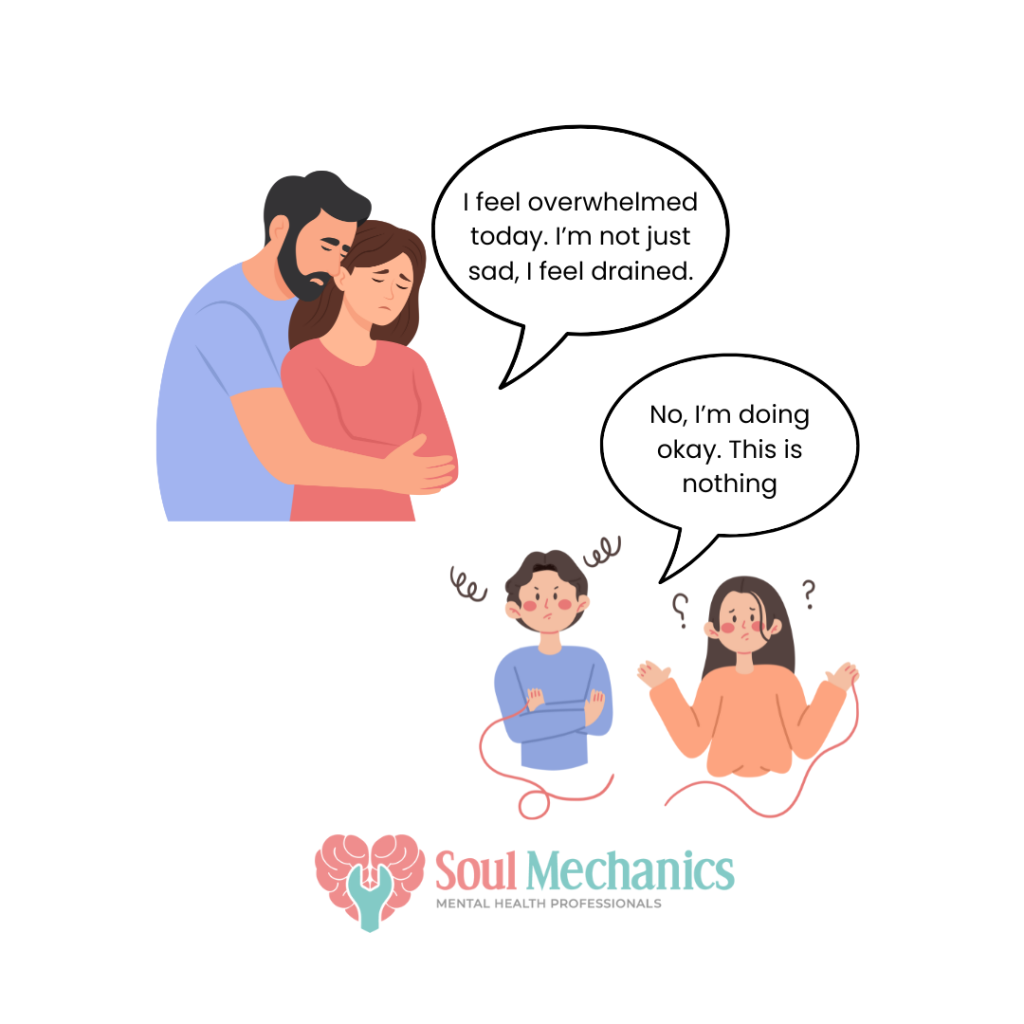
Now imagine two people like that in a relationship, one with the words, one without. It can get tricky, fast.
What Emotional Mismatch Looks Like in Real Life
Let’s say you’re the one who can name your feelings and talk about them. You notice when something’s off, you want to process things, and you’re always trying to create emotional closeness. Your partner, on the other hand? Not so much. They freeze up in emotional conversations. Or they go quiet. Or they try to “fix” things with quick solutions when you just want them to listen.
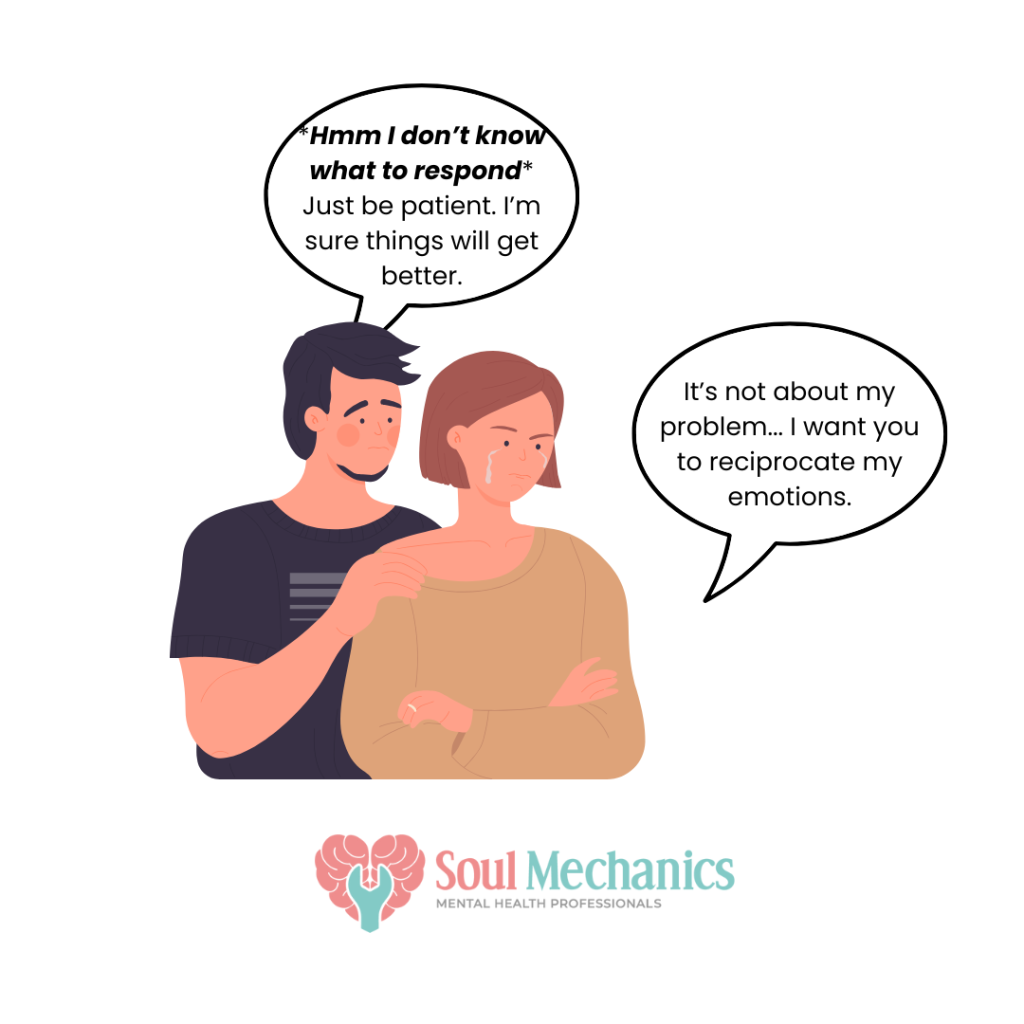
And to you, it starts to feel like, you’re the one doing all the work and your partner is not showing up emotionally and ultimately makes you to think that you’re talking different languages. And in a way… you actually are.
Why Emotional Mismatch Gets So Frustrating
There are a few reasons this mismatch drives people wild.
- One of You Is Doing the “Emotional Heavy Lifting”
You might feel like you’re carrying the weight of the relationship’s emotional life. You’re the one:
• bringing stuff up,
• trying to resolve conflict,
• expressing your needs,
• calming things down,
• creating closeness.
Meanwhile, your partner seems to float above it all – barely engaging, rarely initiating. That gets exhausting. You might even start thinking, “If I stopped trying, would anything ever get better around here?” The truth is, your partner might not even see all the emotional work you’re doing. And if they don’t have the language for their own feelings, they definitely won’t know how to show up for yours.
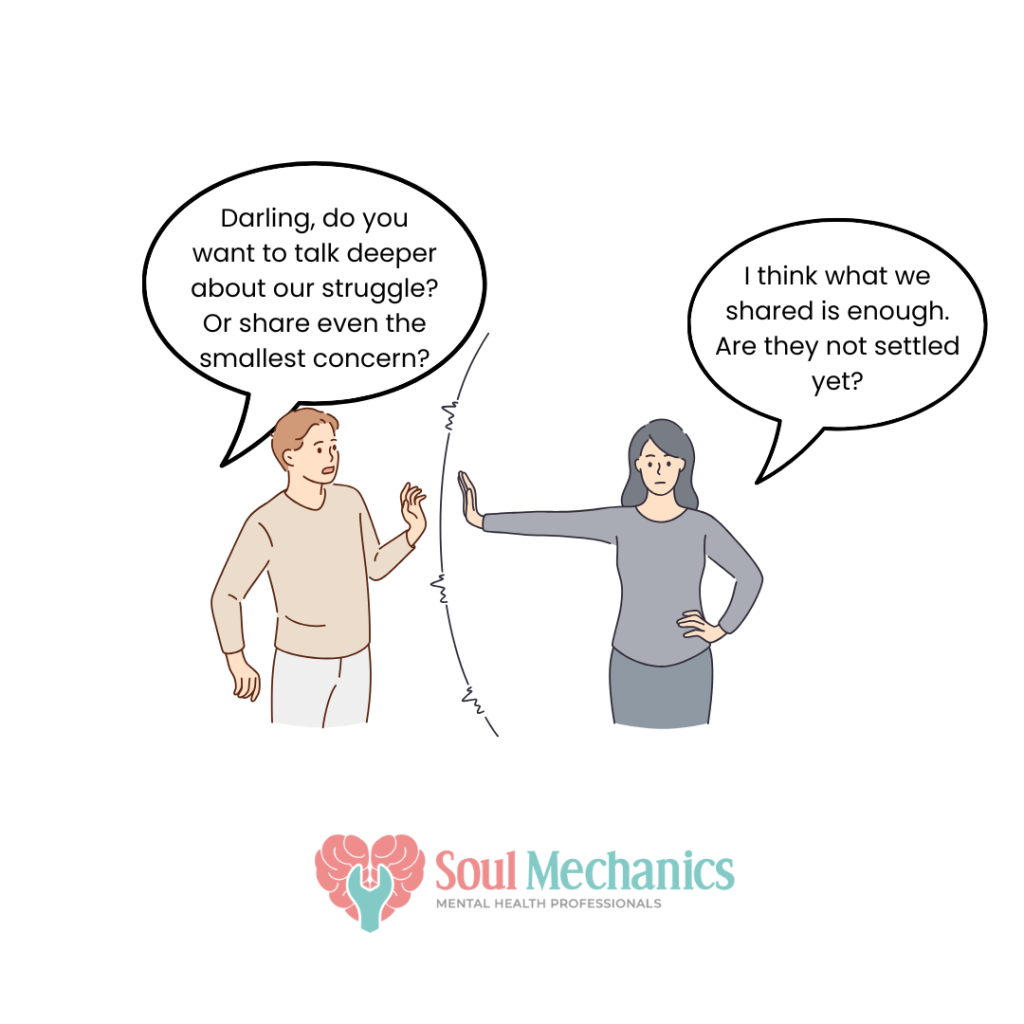
- You Can’t Reach a Shared Understanding
When you explain how you feel, your partner doesn’t always get it. Not because they don’t want to but because it’s like you’re speaking two different emotional dialects. You say, “I’m feeling really insecure right now” and they say, “You don’t need to feel that way” (which isn’t helpful, by the way).
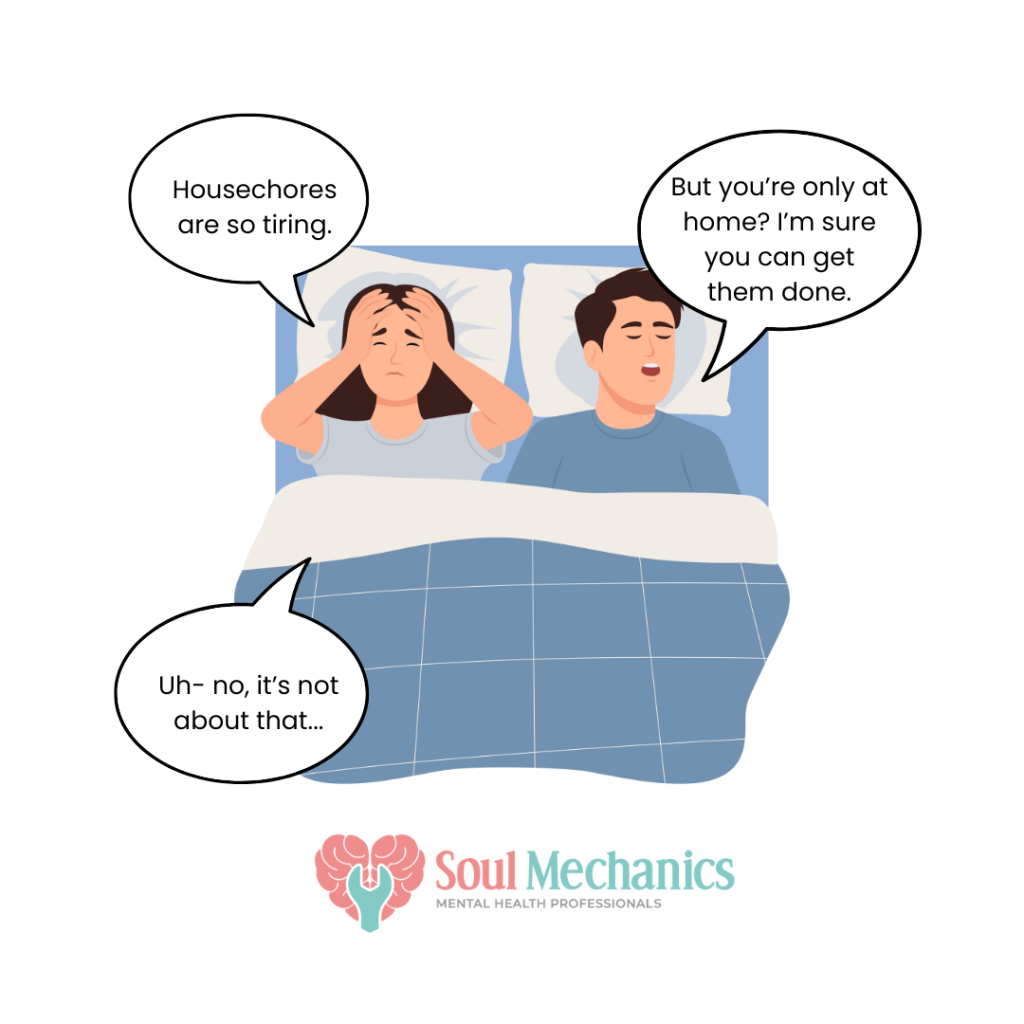
It’s not empathy you’re getting but rather confusion, or maybe a well-meaning attempt to make you feel better. But it doesn’t land right. Because in that moment, you don’t need advice. You need to feel understood.
Where Emotional Mismatch Comes From
Let’s be real, nobody’s born with emotional vocabulary. It’s something we learn. Some of us grew up in homes where people talked about how they felt. There were words for sadness, anger, shame, joy, all of it.
Others grew up in homes where feelings were shut down. Where crying was “dramatic” or anger was “disrespectful.” Maybe you got told things like “Stop being so sensitive” or “Suck it up.”
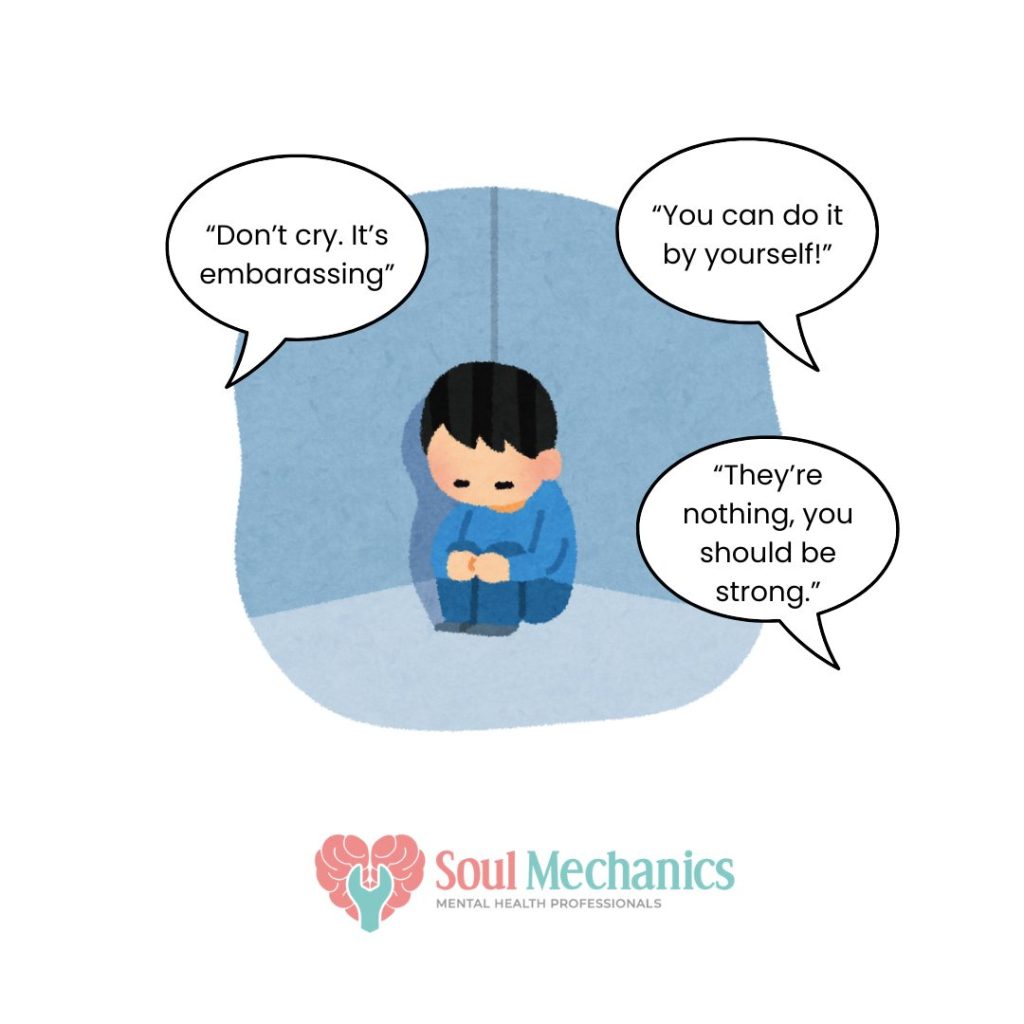
Those words stick. And unless someone later learns a different way through therapy, books, self-reflection, they might not have the tools to talk about their emotions, or handle someone else’s.
So if your partner struggles here, it’s not because they’re broken. They just may have never been taught how.
So What Do You Do About Emotional Mismatch?
The good news? This mismatch doesn’t have to ruin a relationship. But it does need attention. Here are some real, doable things that help.
Talk About It Without Making It a Blame Game
Rather than saying: “You never open up,” try saying something like: “I’ve noticed we deal with emotions differently, and sometimes I feel like I’m carrying the emotional weight. I’d love if we could find ways to understand each other better.” That tone changes everything. You’re not accusing. You’re inviting.
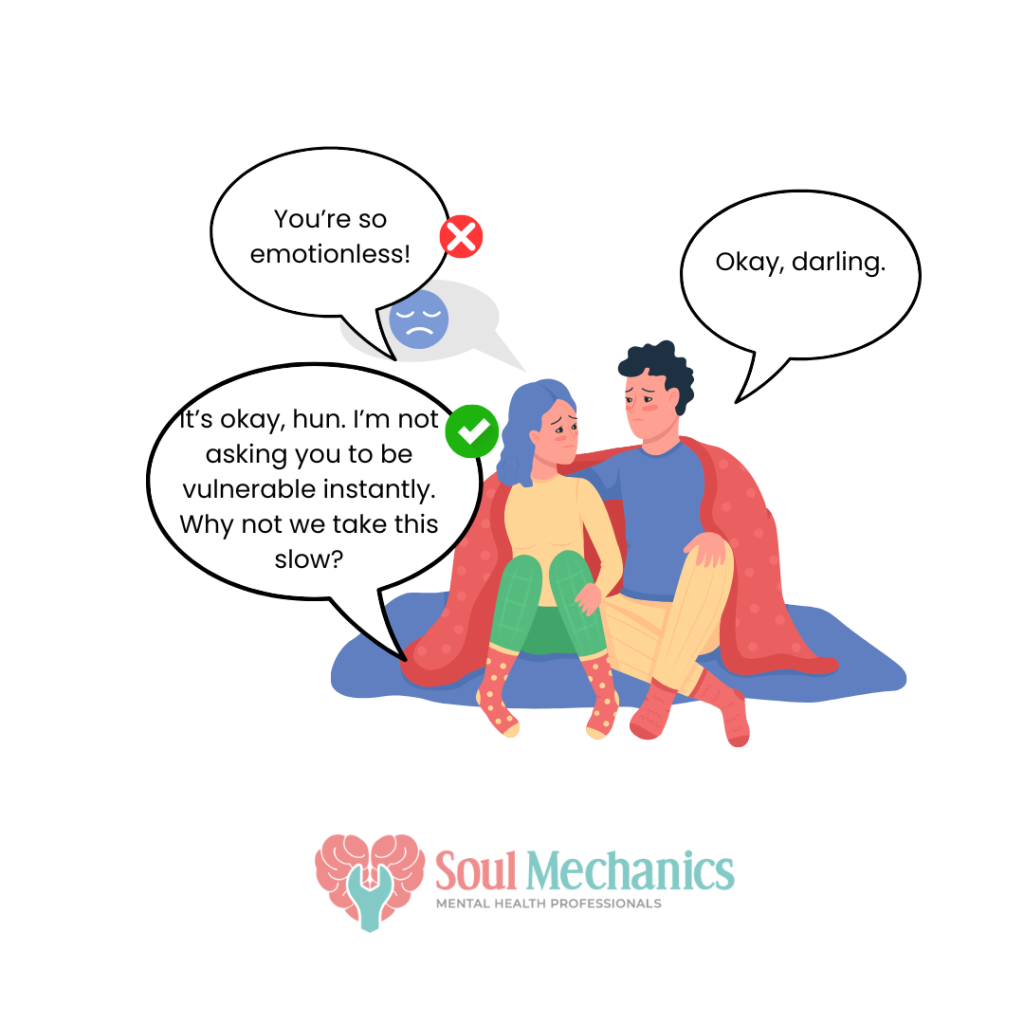
Get Curious About Where They’re Coming From
Ask your partner questions like:
• “What was it like in your family when someone got upset?”
• “Did people talk about feelings growing up?”
• “What do you find hard about these conversations?”
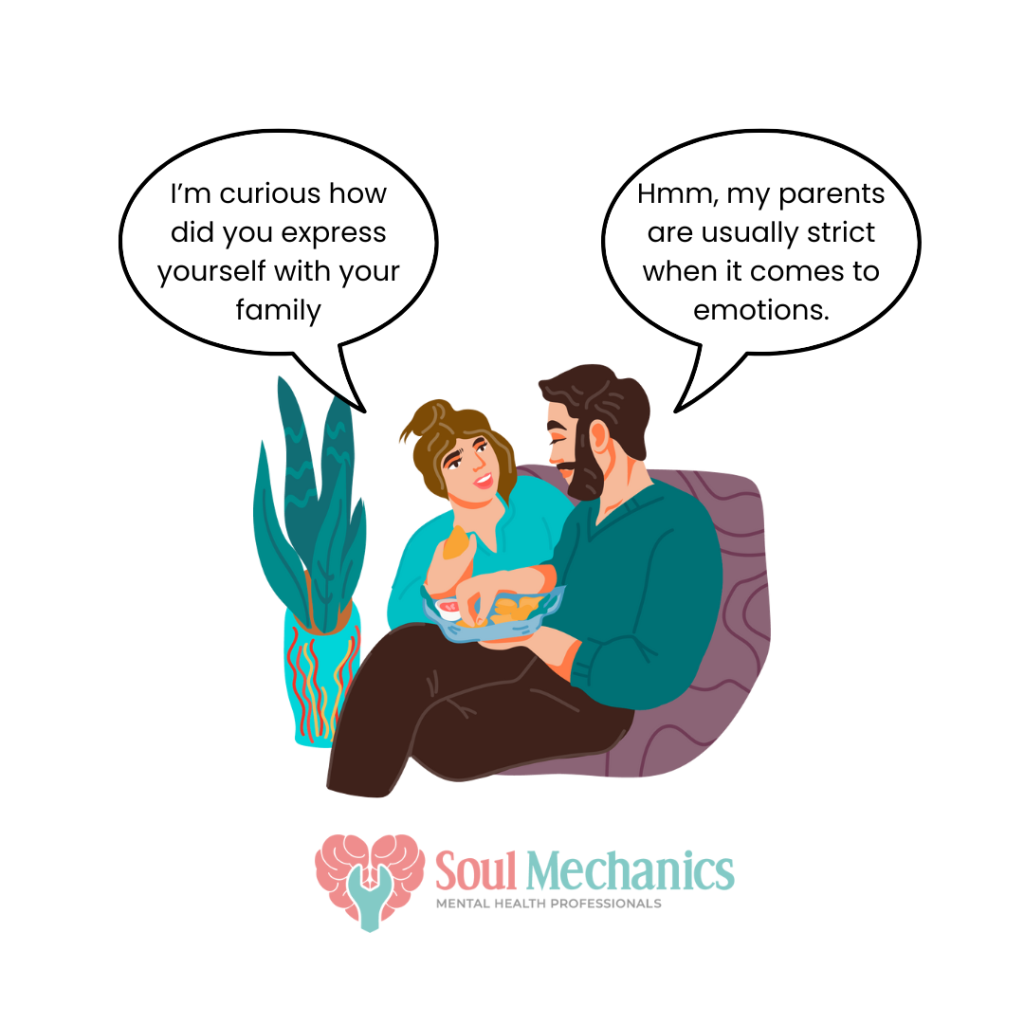
You might learn that they’re not closed off but just out of practice.
Help Build the Vocabulary, Gently
If your partner struggles to name their feelings, don’t shame them for it. Instead, you could say, “Do you think what you’re feeling is more like frustration or disappointment?” You can even use a “feelings wheel” together – yep, it’s a real thing. It shows more specific words than just “angry” or “sad,” and can help both of you get more precise.
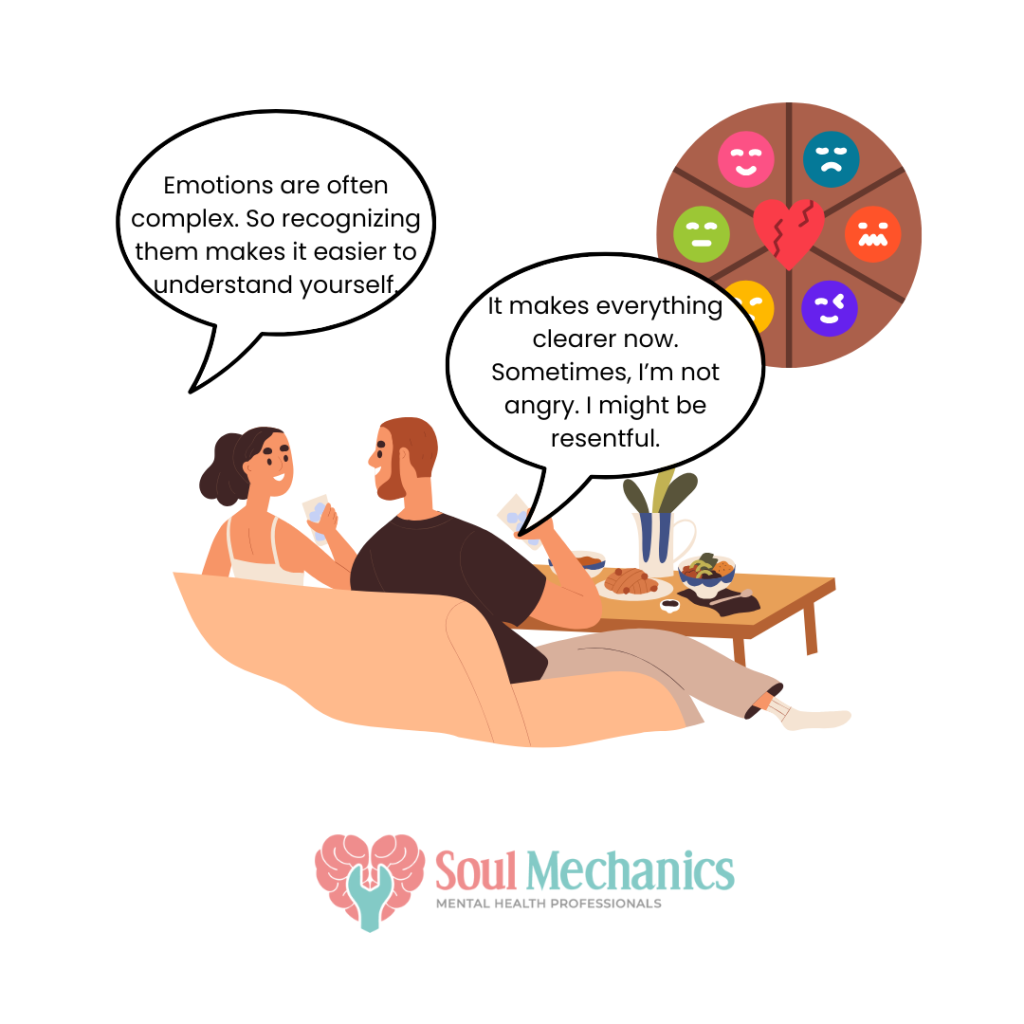
The goal isn’t to force your partner to talk like you. It’s to create a bridge between you.
Slow Down When Emotions Run High
Sometimes, your partner just needs more time to figure out what’s going on inside them. Instead of pushing for answers right away, you can say, “It’s okay if you don’t know how you feel yet. We can talk later when you’ve had time to think.” That makes space for growth. It also shows you respect their process.
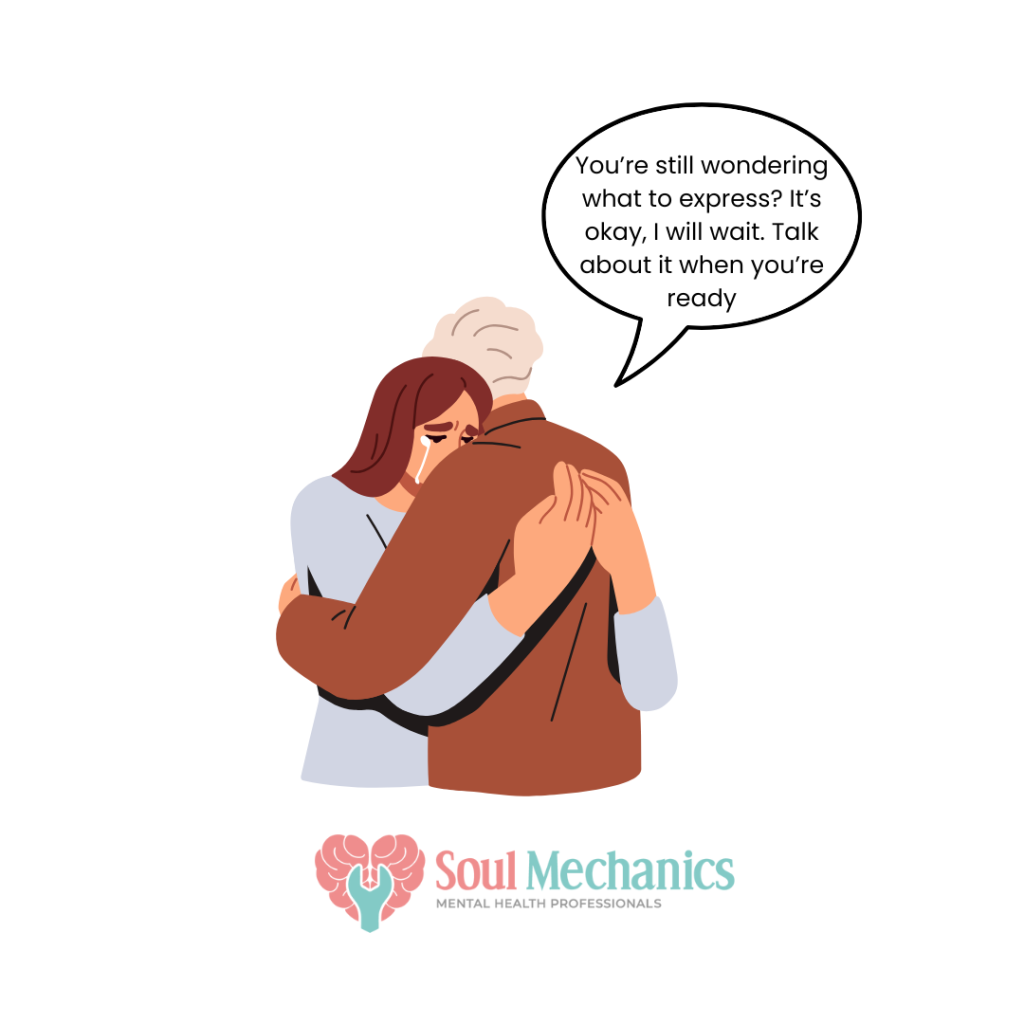
Celebrate Progress, Not Perfection
This is slow work. You won’t see huge changes overnight. But if your partner starts trying to say one honest thing, naming a feeling, staying present during a tough conversation, recognize that effort. This is like learning a new language. And like any language, it gets easier the more you practice.
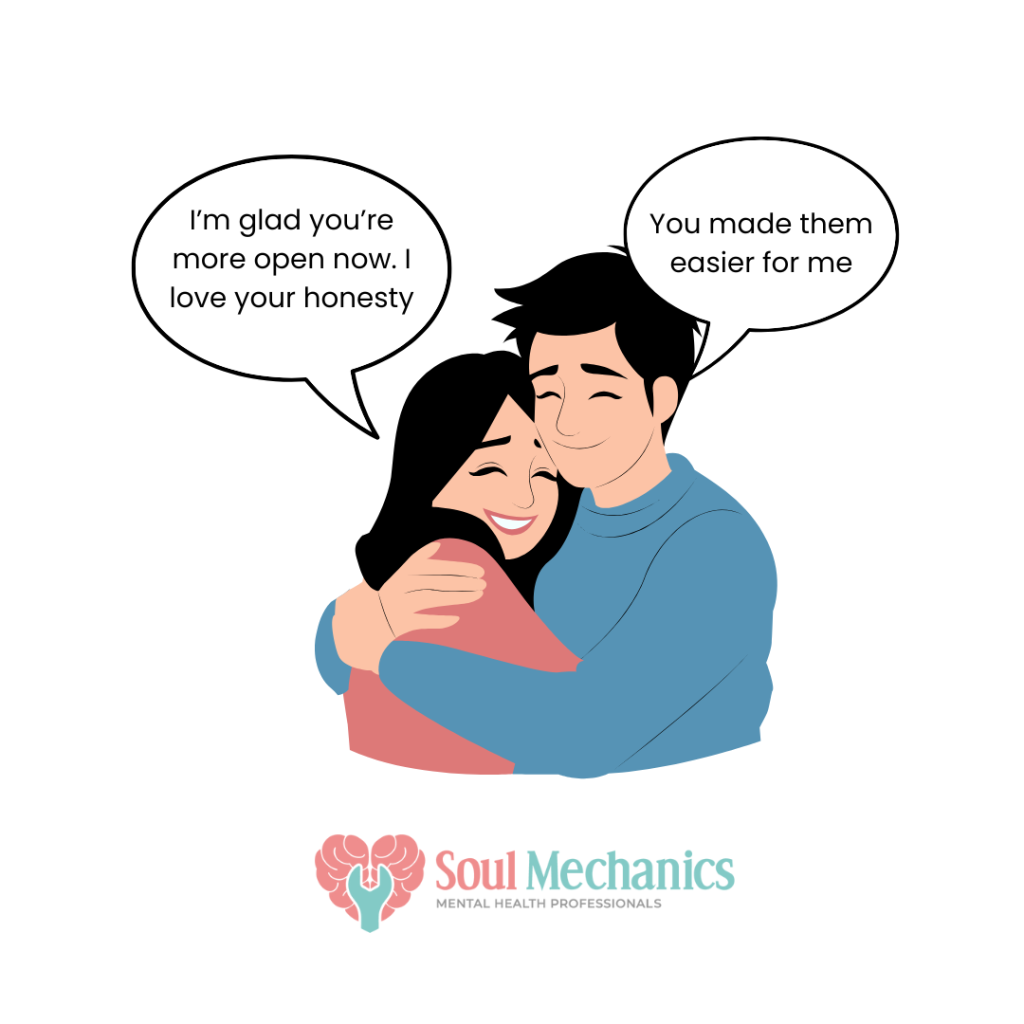
When to Get Help
Sometimes, this emotional mismatch causes fights, miscommunication, or hurt that feels too big to handle on your own. That’s where couples counselling can make a huge difference.
A good therapist can help you both:
• Understand where your patterns come from
• Learn better ways to connect
• Build a shared emotional language step by step
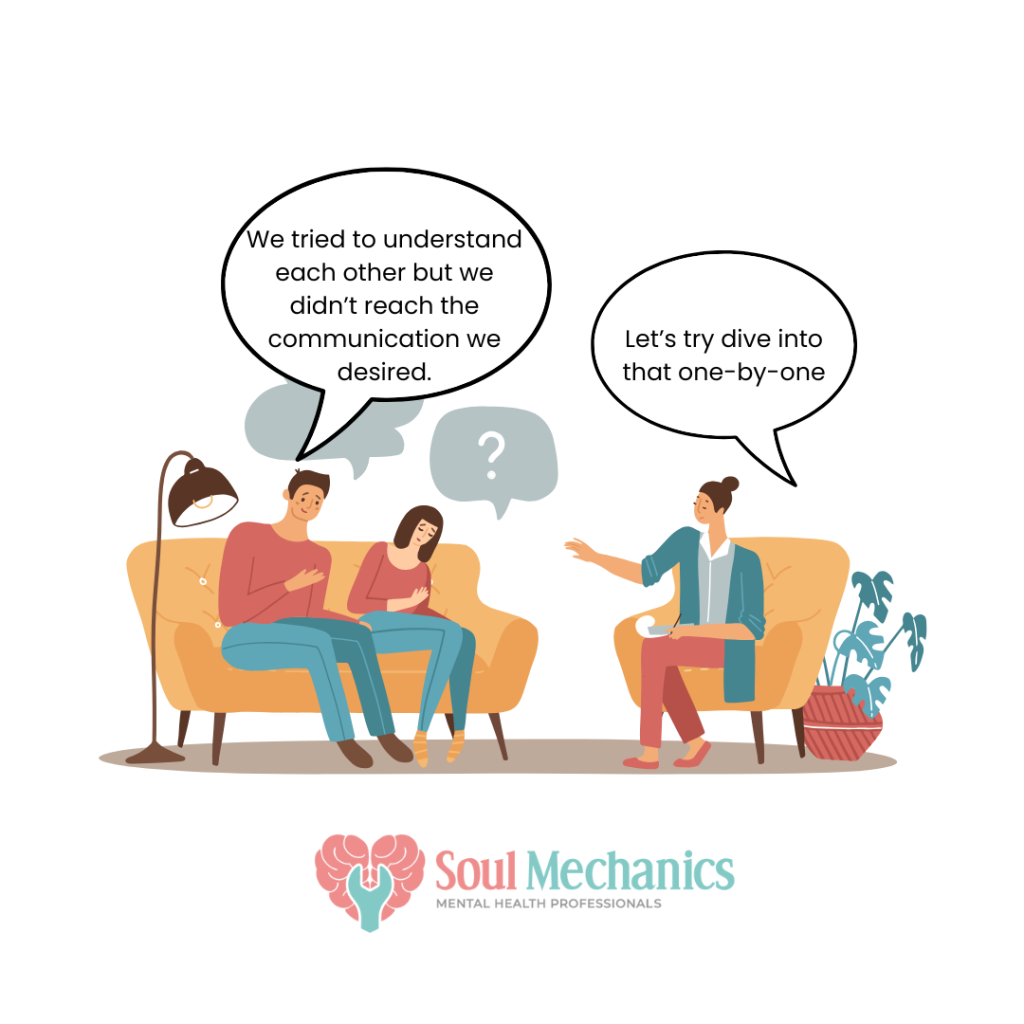
Get support before things fall apart.
Final Thoughts
Having different emotional vocabularies doesn’t mean you’re not compatible. It just means you need a little help understanding each other.
If you’re the one with the words, try to be patient. You, the one still learning, be honest about that. And if you’re both willing to show up, even imperfectly, that’s what really matters.

Because the goal isn’t to become perfect communicators overnight. It’s just to keep showing up with a little more honesty, a little more effort, and a whole lot of heart.

